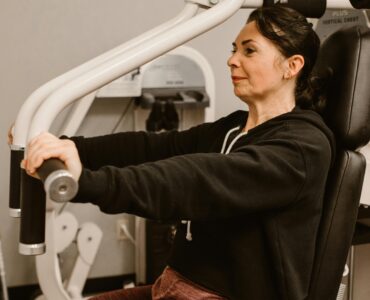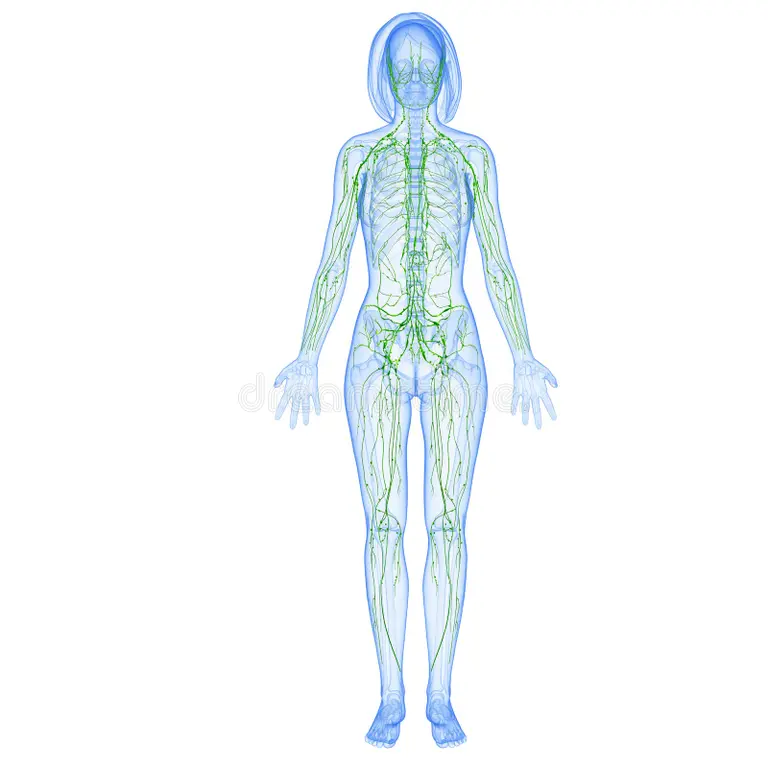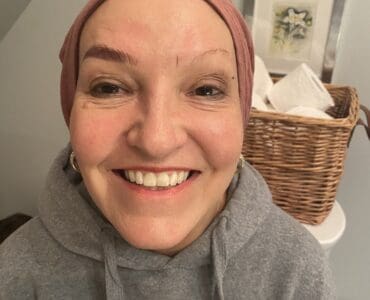I remember the feeling well. I banged the gong. Radiation, the last leg of active treatment was done. And yet, I was incredibly emotional and at loose ends. The trauma is real. And what you are feeling is valid. It is called a cancer hangover.
From the moment my doctor spoke the words “I am sorry it is cancer,” my central nervous system was in flight or fight mode.
According to Harvard University, stress response begins in the brain in an area called the amygdala. When it perceives danger, the amygdala instantly sends a distress signal to the hypothalamus, the brain’s command and control center. That triggers a response from our central nervous system. A corticotropin-releasing hormone (CRH) is released and travels to the pituitary gland, releasing adrenocorticotropic hormone (ACTH). That’s an adrenaline jolt that gives your body the energy to flee from danger. All of this happens without you even becoming aware of what is going on.
It was seven months from the time of my diagnosis to the end of active treatment. My body and brain contended with diagnosis, tests, surgeries, more tests, and chemotherapy. My foot was firmly on the stress gas pedal and my body was in stress turbo mode.
When the brain and body perceive the threat has passed the parasympathetic nervous system takes over, serving as a “brake” to slow one’s stress response.
I certainly know I felt it, and have friends who feel exactly the same. Cancer and all that comes with it leave you stunned, and it’s only in the aftermath you begin to process what has happened. T
The closest analogy I have is akin to planning a big event, such as a wedding. The months leading up to the day are filled with decisions, list-making, planning, fittings and tastings. The wedding day arrives. When the last toast is made and the party winds down, you are left feeling hollow and at loose ends.
It is estimated that one in four women who experience a breast cancer diagnosis live with post-traumatic stress disorder. It is a topic that is not discussed or studied enough in my opinion.
Trauma is a disruption of one’s sense of safety and security, rupturing the very fabric of one’s reality. The diagnosis of breast cancer embodies this rupture, thrusting individuals into host of unknowns where the familiar terrain of health and well-being suddenly dissolves into uncertainty. The psychological impact of such a diagnosis reverberates across every facet of an individual’s life, shattering preconceived notions of invulnerability and confronting mortality in its rawest form. The journey through diagnosis, treatment, and beyond becomes a battleground where the psyche grapples with a multitude of emotions ranging from fear and anger to grief and profound existential questioning.
Central to the psychology of trauma is the concept of loss — loss of health, loss of control, and loss of identity. As a person who had always been healthy, I felt a profound sense of loss and betrayal. My body which I had so carefully cared for let me down. I lost the sense of invincibility that travels with good health. The loss of my breasts, parts of my body that had been with me since the age of 13 challenged my perception of femininity and womanhood. While I have accepted my new body. I won’t lie, I grieved their loss.
The side effects of chemotherapy, radiation, and surgery extend far beyond the physical realm, permeating into the psyche. Beyond the loss of breasts, we have to deal with hair loss, weight fluctuations, and achy joints which serve as constant reminders of the battle we waged. While I try not to dwell on it, every doctor’s appointment, every follow-up scan, every friend that experiences a recurrence or dies, refreshes that trauma.
The trauma we experience exists in a society that collectively fears cancer. I know when I was diagnosed, I was terrified by the mere thought of cancer and the treatments that came with it. Terrified about being sick or labelled sick. Terrified about my first surgery. Terrified about losing my hair. Terrified that I might lose my income. Lose my life. This terror associated with cancer also impacts the way people deal with those who are diagnosed. Cancer “ghosting” is a real thing, and many of us have experienced abandonment by friends and even family members who cannot move past their fears to relate to someone who has been diagnosed. Those losses can compound and deepen the trauma.
While trauma is a terrible thing I certainly want no one to experience, I will end on a hopeful note. While PTSD is very real, there is the phenomenon of post-traumatic growth. It is inspiring to me that in depths of despair, individuals discover the reservoirs of courage and resilience within themselves, emerging from the crucible of trauma with newfound wisdom,a sense of purpose, compassion, and gratitude for the precious gift of life.




